State of AI Apps Report 2025 is Live!
Gaming Insights · Donny Kristianto · October 2025
Cross-Platform Gaming: Bridging Mobile and PC/Console
The modern gaming landscape is defined by two powerful forces: Mobile’s vast accessibility and PC/console’s premium depth. This report outlines strategies for building resilient, cross-platform portfolios that capture the best of both worlds.
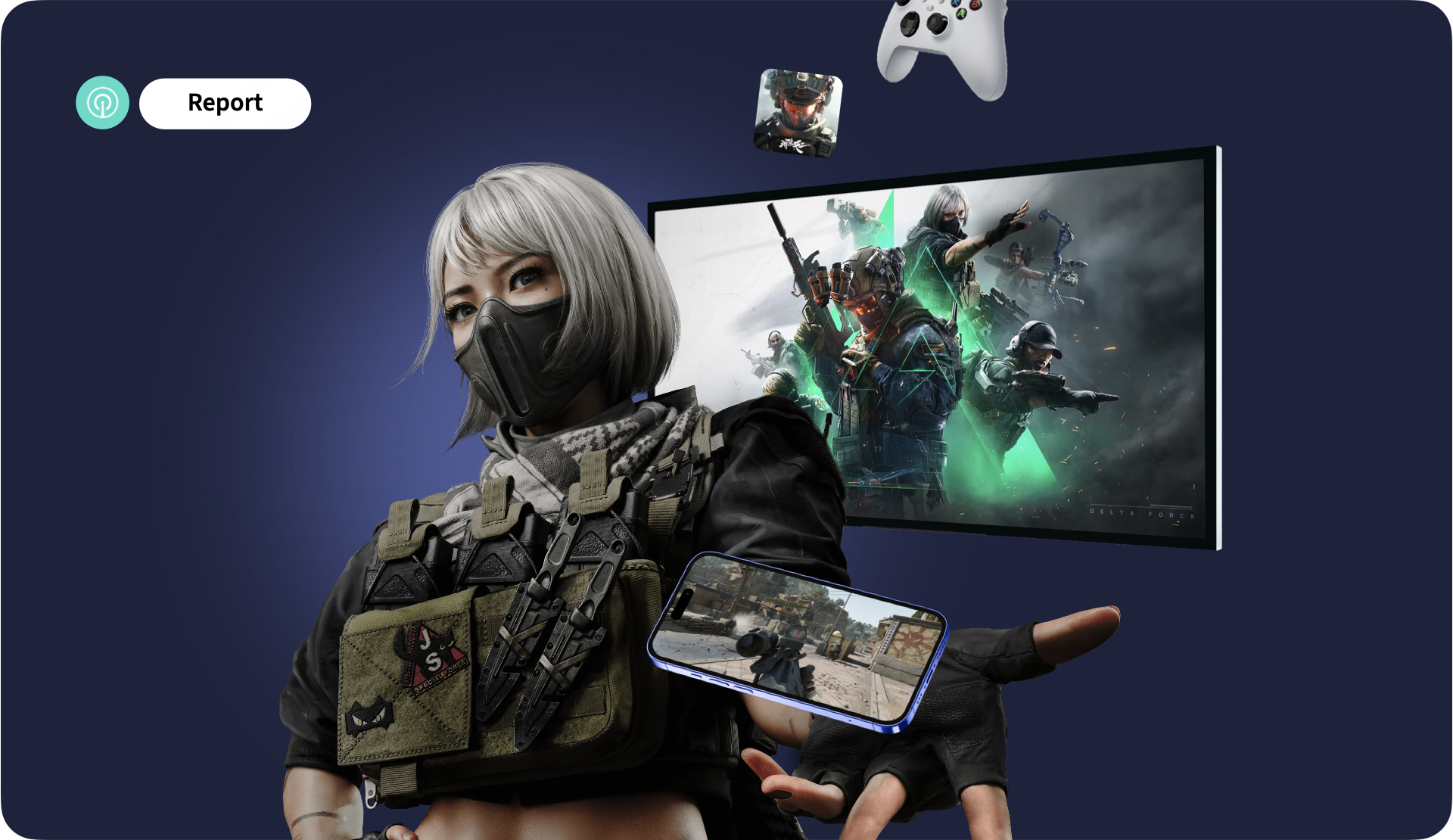
The 2025 gaming market revolves around two forces: mobile’s unmatched global scale and PC/console’s premium depth.
Mobile drives mass reach and discovery, with 52 billion downloads and $82 billion in IAP revenue, serving as the main gateway for new IPs. PC/console generates over $12 billion from 1 billion units, anchoring high-value engagement and brand prestige.
Mobile excels in scale; PC/console in revenue per unit. The winning strategy is to let mobile’s broad funnel feed premium ecosystems—maximizing total franchise growth across platforms.
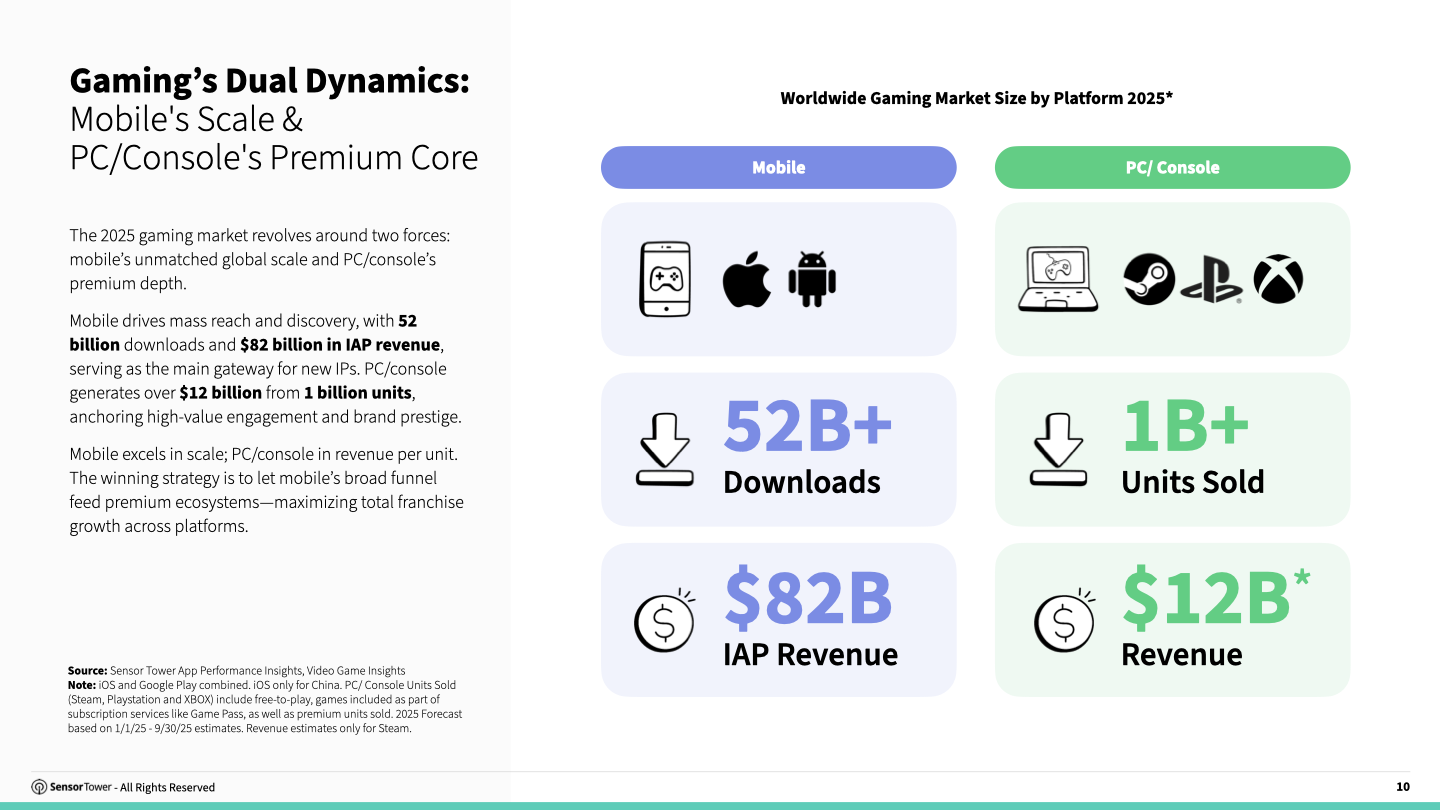
Note: The download data in this report are based on Sensor Tower's estimated downloads from the App Store and Google Play, excluding pre-installs, re-downloads, and downloads from third-party Android marketplaces. Google Play is not available in Mainland China. PC/ Video Games data are derived from Sensor Tower’s Video Game Insights, covering Steam, Playstation and XBOX platforms.
For more insights, please click the button below to view the full report for free.
Converting Mobile Momentum into Premium Engagement
Given the accessibility of mobile devices, mobile gaming delivers unmatched global reach and serves as the industry’s primary discovery engine. With iOS and Google Play downloads exceeding 12.5 billion each quarter, it provides a steady pipeline for user acquisition and brand exposure—forming a stable foundation for publisher portfolios.
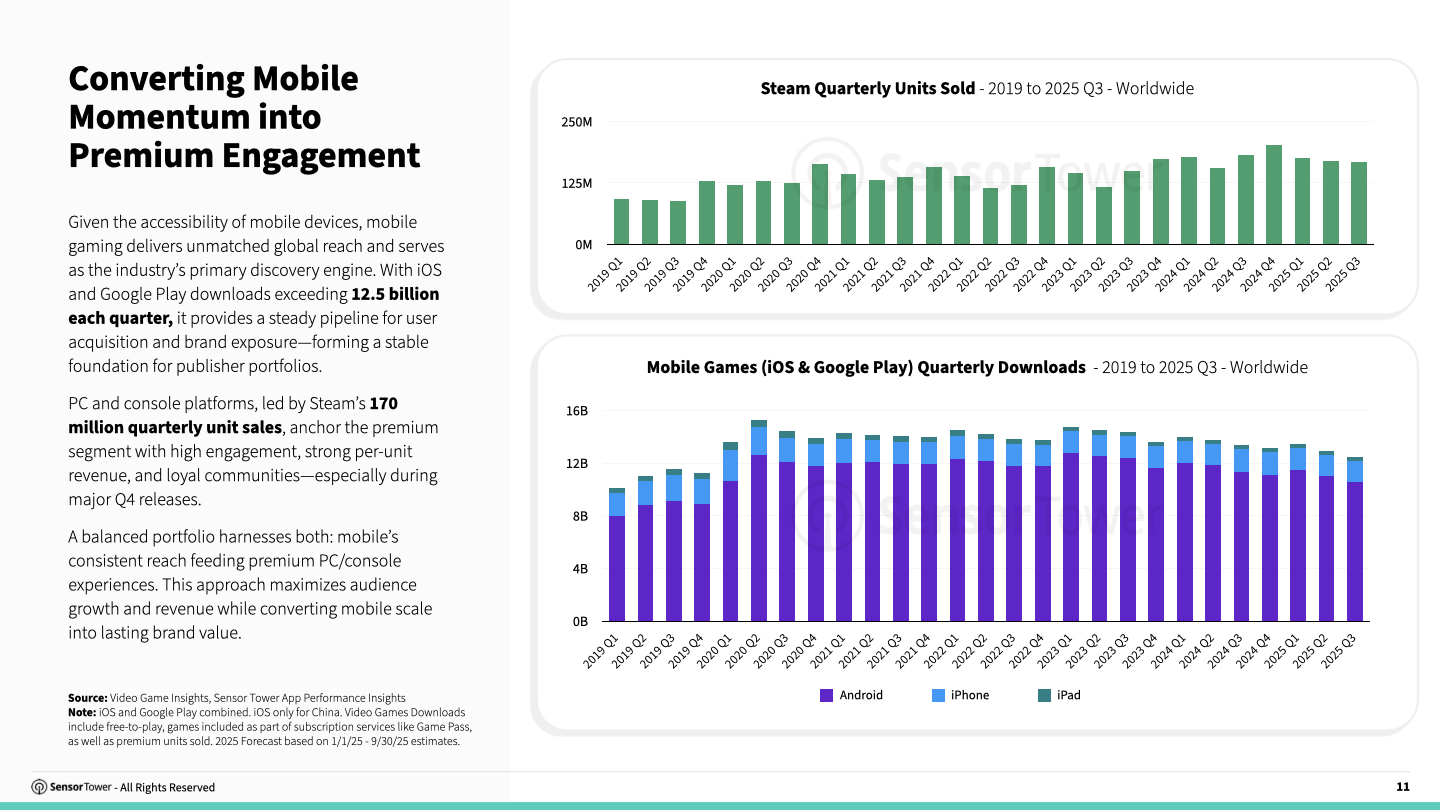
PC and console platforms, led by Steam’s 170 million quarterly unit sales, anchor the premium segment with high engagement, strong per-unit revenue, and loyal communities—especially during major Q4 releases.
A balanced portfolio harnesses both: mobile’s consistent reach feeding premium PC/console experiences. This approach maximizes audience growth and revenue while converting mobile scale into lasting brand value.
Mobile’s Scale Fuels Steady Growth, While PC/Console Delivers Revenue Peaks
Mobile’s vast scale continues to drive steady, long-term growth. With billions of users and strong in-app purchase momentum surpassing $20 billion per quarter, it provides a dependable foundation for sustained portfolio expansion.
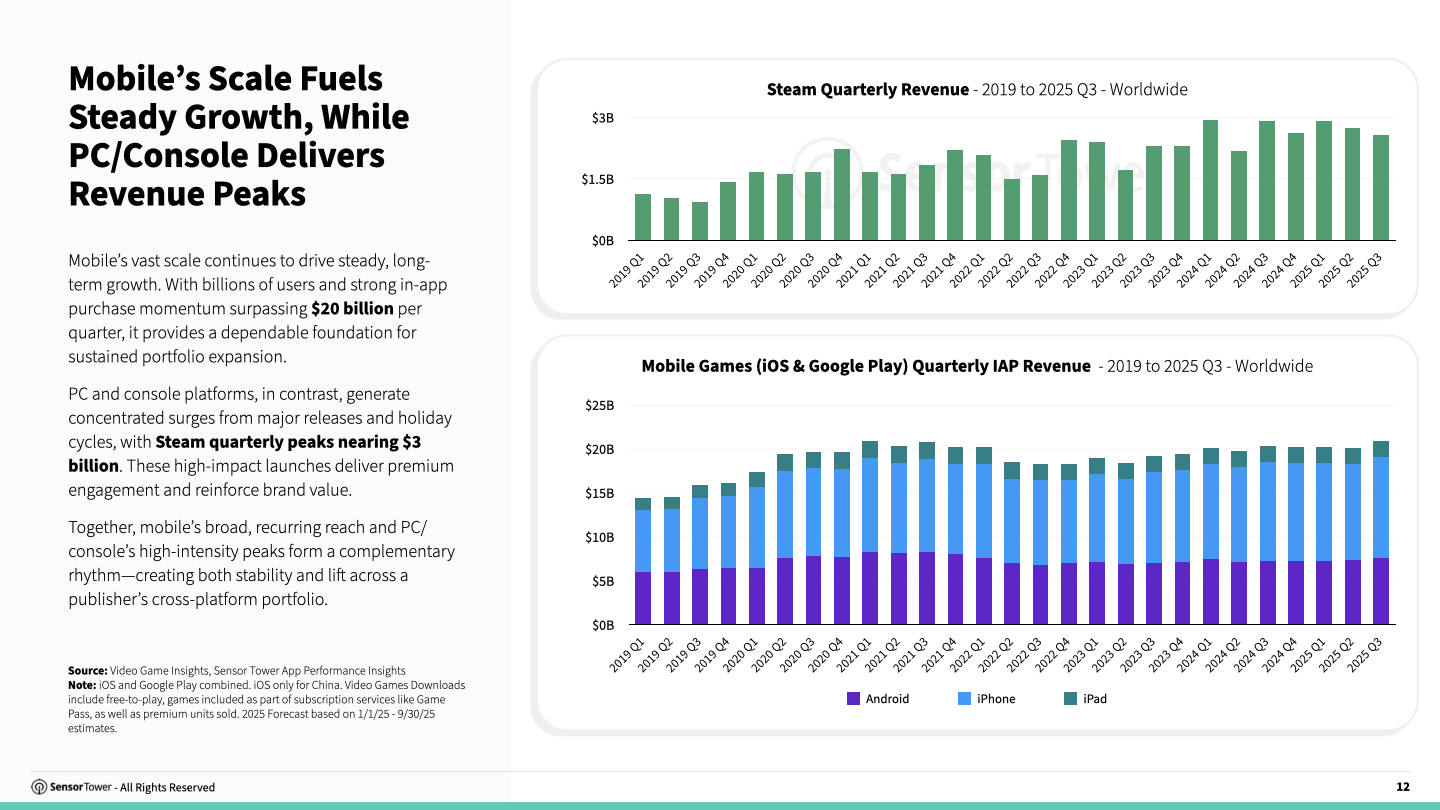
PC and console platforms, in contrast, generate concentrated surges from major releases and holiday cycles, with Steam quarterly peaks nearing $3 billion. These high-impact launches deliver premium engagement and reinforce brand value.
Together, mobile’s broad, recurring reach and PC/console’s high-intensity peaks form a complementary rhythm—creating both stability and lift across a publisher’s cross-platform portfolio.
Blueprints for Expansion: Strategic Models for Cross-Platform Development
As franchises expand beyond single-platform success, publishers increasingly design IP with multi-platform ecosystems in mind. From companion apps that extend engagement to full cross-play experiences that unite communities, each approach offers a distinct path to growth. These models illustrate how publishers can strategically evolve IP across platforms—balancing accessibility, monetization depth, and brand consistency to sustain long-term franchise value.
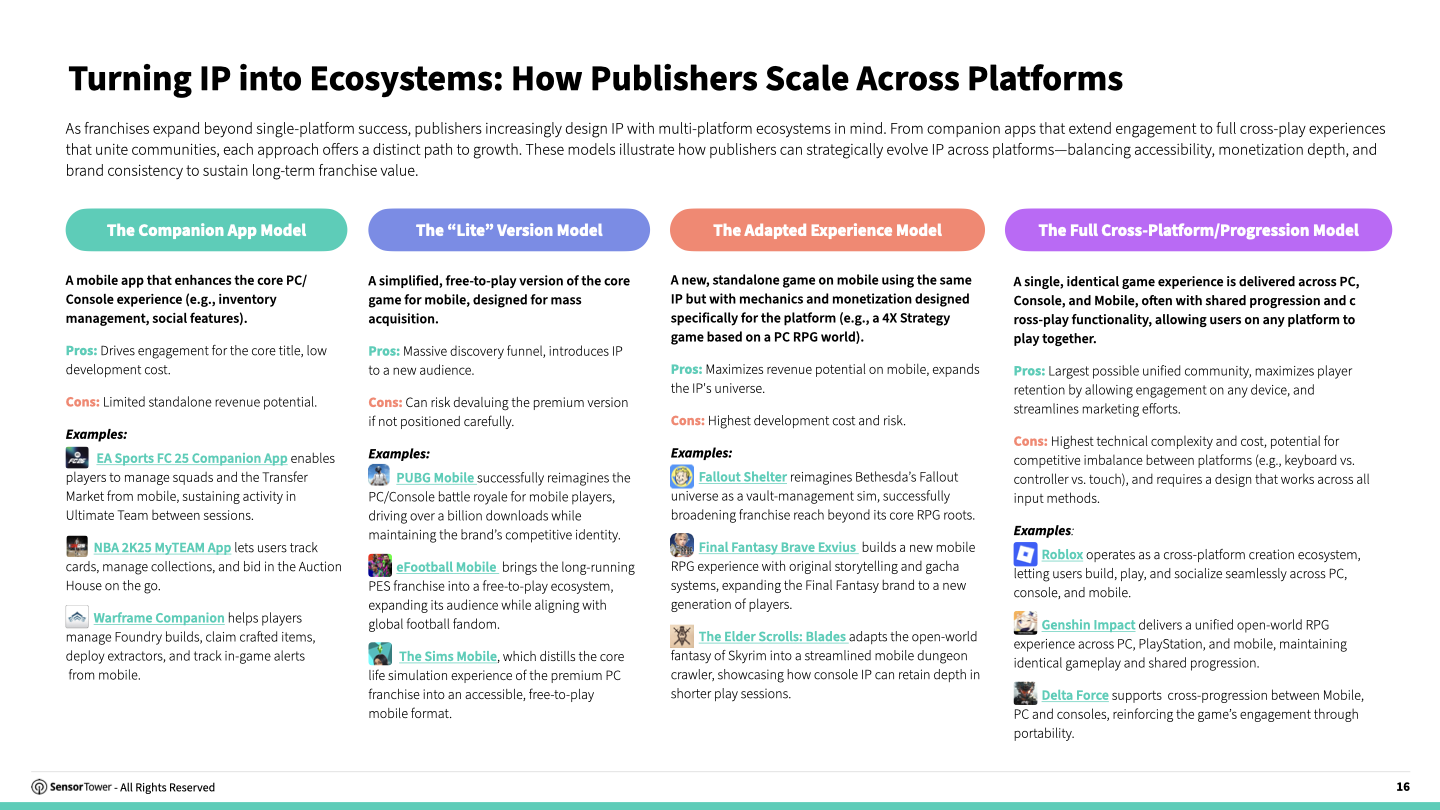
Connected Play: How Companion Apps Strengthen Engagement Across Platforms
Companion apps extend the life of live-service games by keeping players active beyond the main platform. They enable features like inventory management, trading, and event tracking—turning idle time into meaningful engagement that sustains daily interaction across ecosystems.
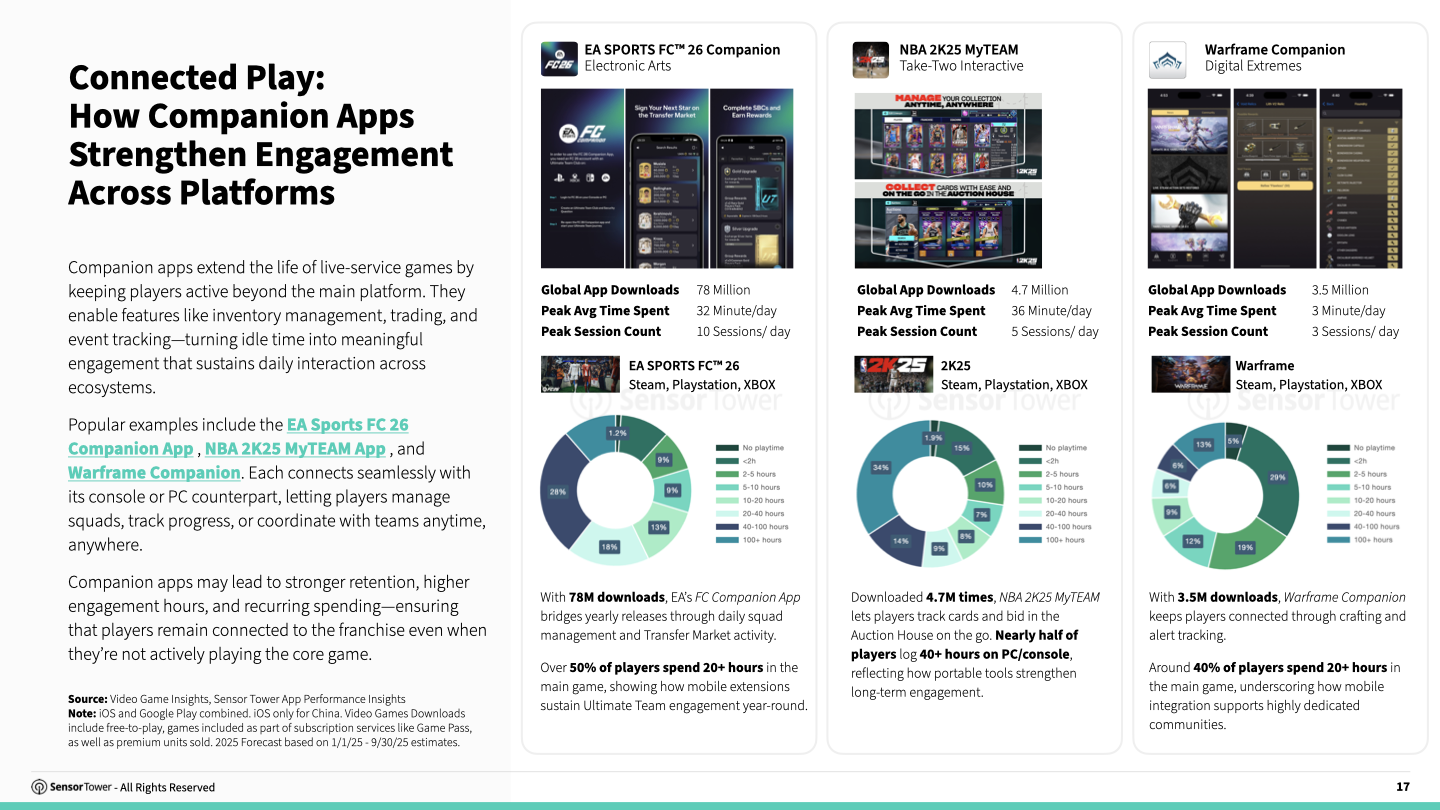
Popular examples include the EA Sports FC 26 Companion App , NBA 2K25 MyTEAM App , and Warframe Companion. Each connects seamlessly with its console or PC counterpart, letting players manage squads, track progress, or coordinate with teams anytime, anywhere.
Companion apps may lea to stronger retention, higher engagement hours, and recurring spending—ensuring that players remain connected to the franchise even when they’re not actively playing the core game.
Lite Versions: Expanding Reach and Discovery for Global Franchises
Lite versions reimagine premium PC and console games for mobile audiences through simplified gameplay and free-to-play models. They act as large-scale discovery funnels, enabling franchises to reach players in markets where console adoption remains limited.
Successful examples include PUBG Mobile, eFootball Mobile, and The Sims Mobile, each bringing established IPs to new audiences. These mobile versions preserve the franchise’s identity while tailoring gameplay and monetization to suit shorter sessions and broader accessibility.
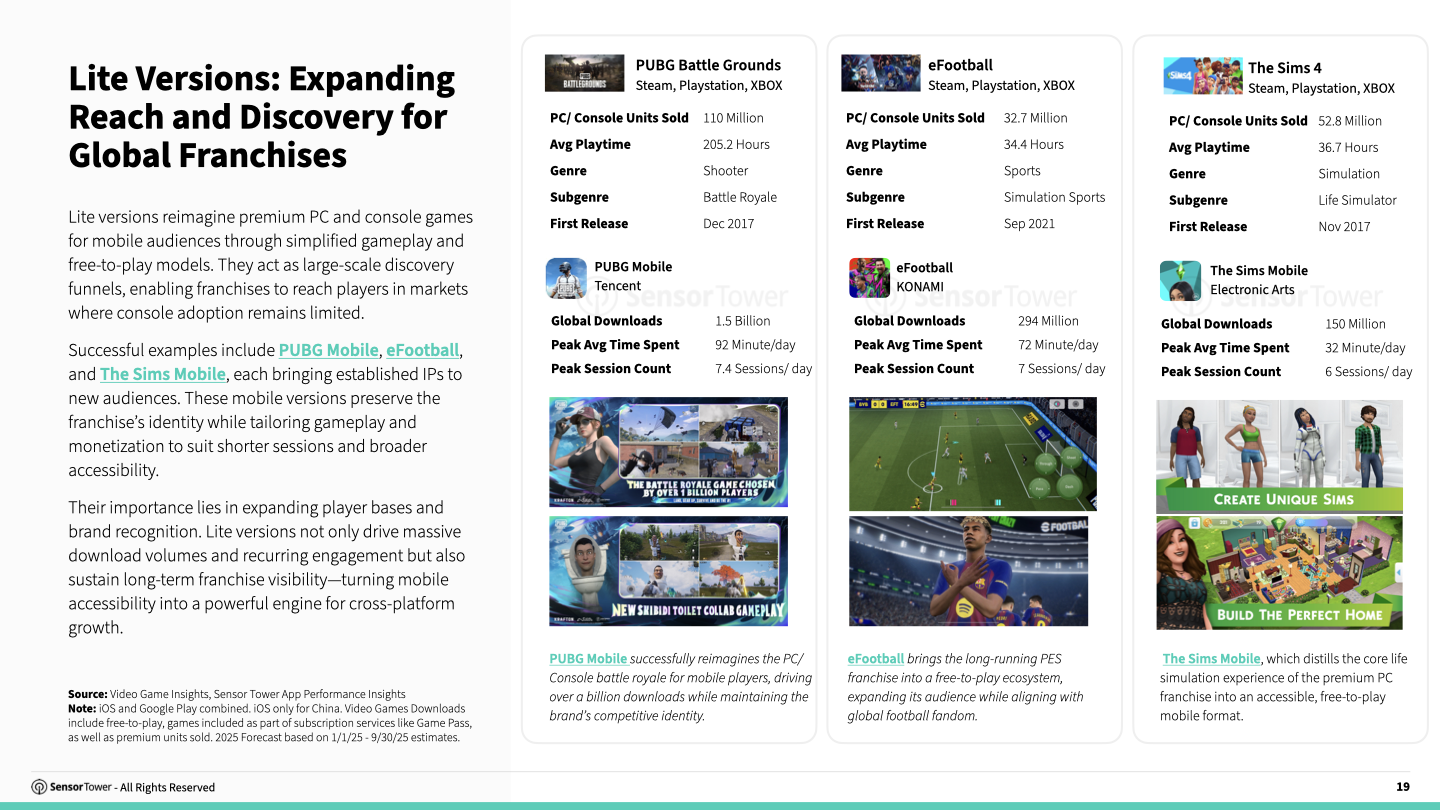
Their importance lies in expanding player bases and brand recognition. Lite versions not only drive massive download volumes and recurring engagement but also sustain long-term franchise visibility—turning mobile accessibility into a powerful engine for cross-platform growth.
Adapted Experiences: Expanding IP Universes Through Mobile-First Innovation
Adapted experiences reimagine existing PC and console franchises for mobile audiences, offering new gameplay mechanics and monetization models. Unlike direct ports, these titles—such as Fallout Shelter, Final Fantasy Brave Exvius and The Elder Scrolls: Blades —translate complex worlds into accessible, session-friendly mobile formats that reach broader audiences.
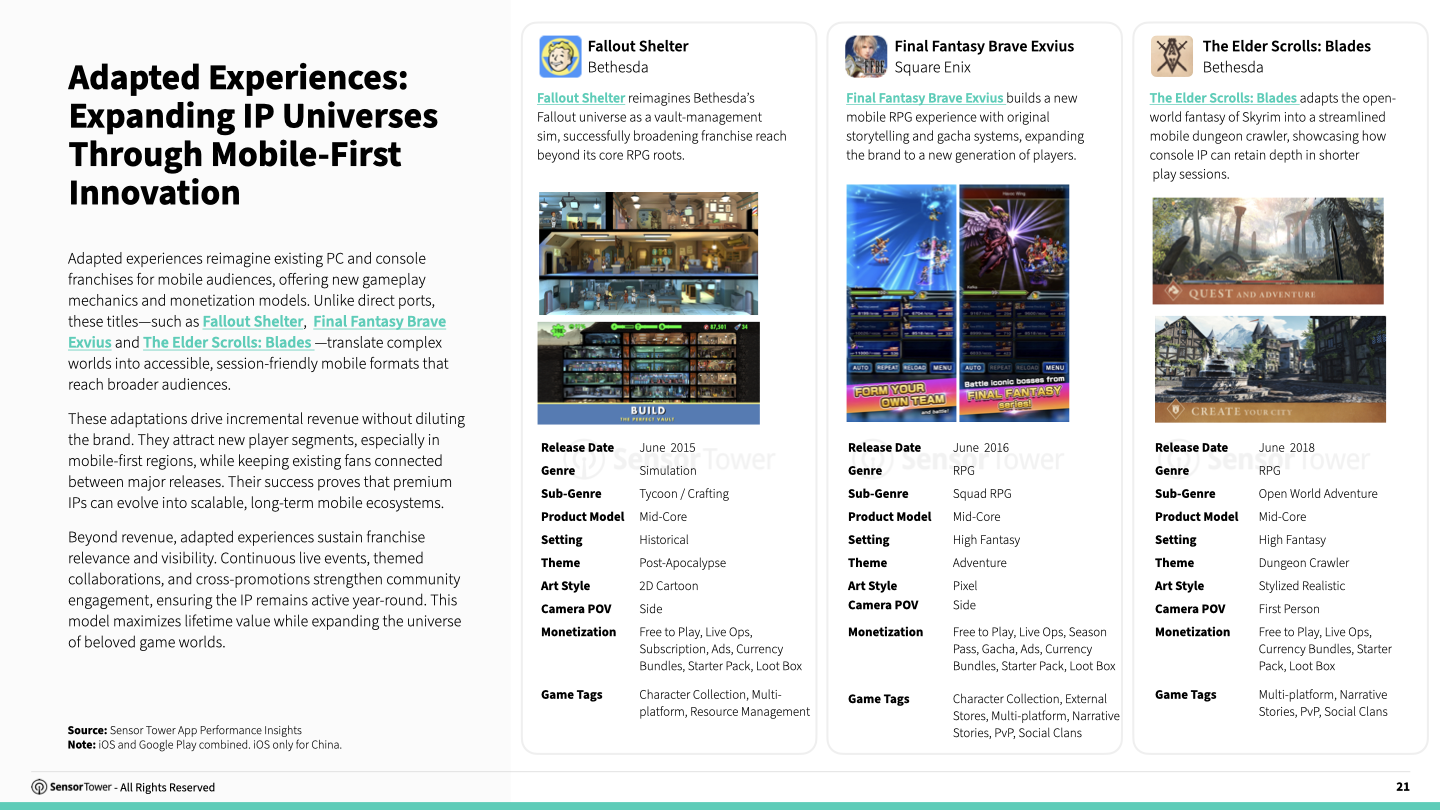
These adaptations drive incremental revenue without diluting the brand. They attract new player segments, especially in mobile-first regions, while keeping existing fans connected between major releases. Their success proves that premium IPs can evolve into scalable, long-term mobile ecosystems.
Beyond revenue, adapted experiences sustain franchise relevance and visibility. Continuous live events, themed collaborations, and cross-promotions strengthen community engagement, ensuring the IP remains active year-round. This model maximizes lifetime value while expanding the universe of beloved game worlds.
Cross-Play and Cross Progression: Building Unified Global Game Communities
Cross-platform titles deliver a seamless, identical experience across PC, console, and mobile—allowing users to play, progress, and socialize together. Games like Roblox, Genshin Impact and Delta Force demonstrate how shared ecosystems sustain engagement by removing device barriers and unifying player progression.
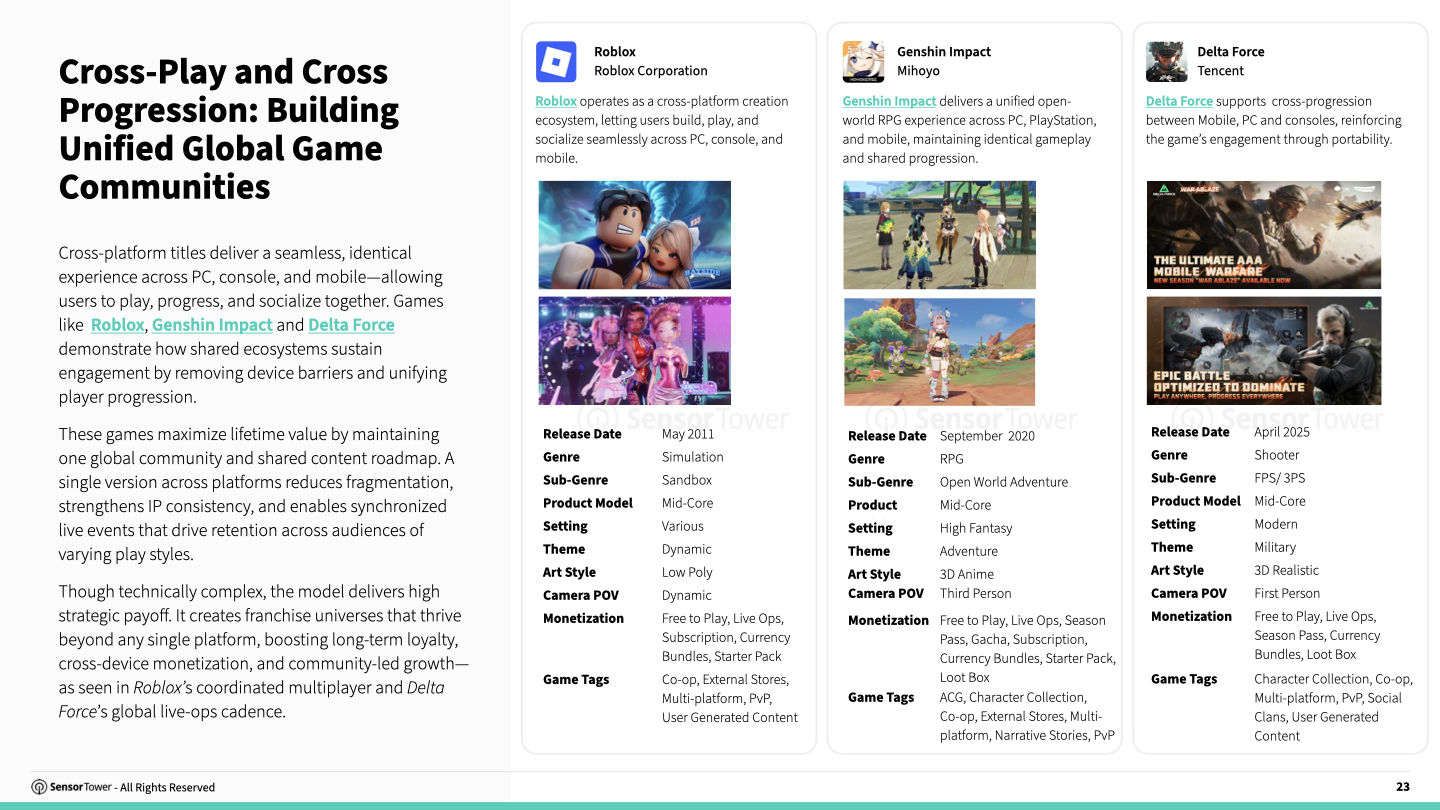
These games maximize lifetime value by maintaining one global community and shared content roadmap. A single version across platforms reduces fragmentation, strengthens IP consistency, and enables synchronized live events that drive retention across audiences of varying play styles.
Though technically complex, the model delivers high strategic payoff. It creates franchise universes that thrive beyond any single platform, boosting long-term loyalty, cross-device monetization, and community-led growth—as seen in Roblox’s coordinated multiplayer and Delta Force’s global live-ops cadence.
Looking Ahead: The Future of Cross-Platform Gaming
As the lines between mobile, PC, and console continue to blur, publishers face the challenge of building unified experiences that combine mobile’s global accessibility with PC/console’s premium depth. The convergence of ecosystems will redefine how players discover, engage, and spend across platforms.
For a deeper look at the strategies driving cross-platform success—including companion apps, lite versions, adapted experiences, and full cross-play integration—download the full report below to explore how leading publishers are shaping the next era of connected, cross-platform gaming.
